hindu Festivals & Rituals
January

Lohri (January 14, 2024)
Lohri & What It Means
The term ‘Lohri’ comes from the word ‘Loh’ meaning iron. It refers to the iron girdle or pans used to make flat breads in Indian households for feasts.
Lohri is a festival that celebrates the harvest of the winter crops in nothern India, marking the end of peak winter in the region. Lohri is a time to feast on the winter harvest and enjoy the coldest day of the winter by communities gathering & dancing around the bonfire. Lohri signifies abundance and communal spirit.
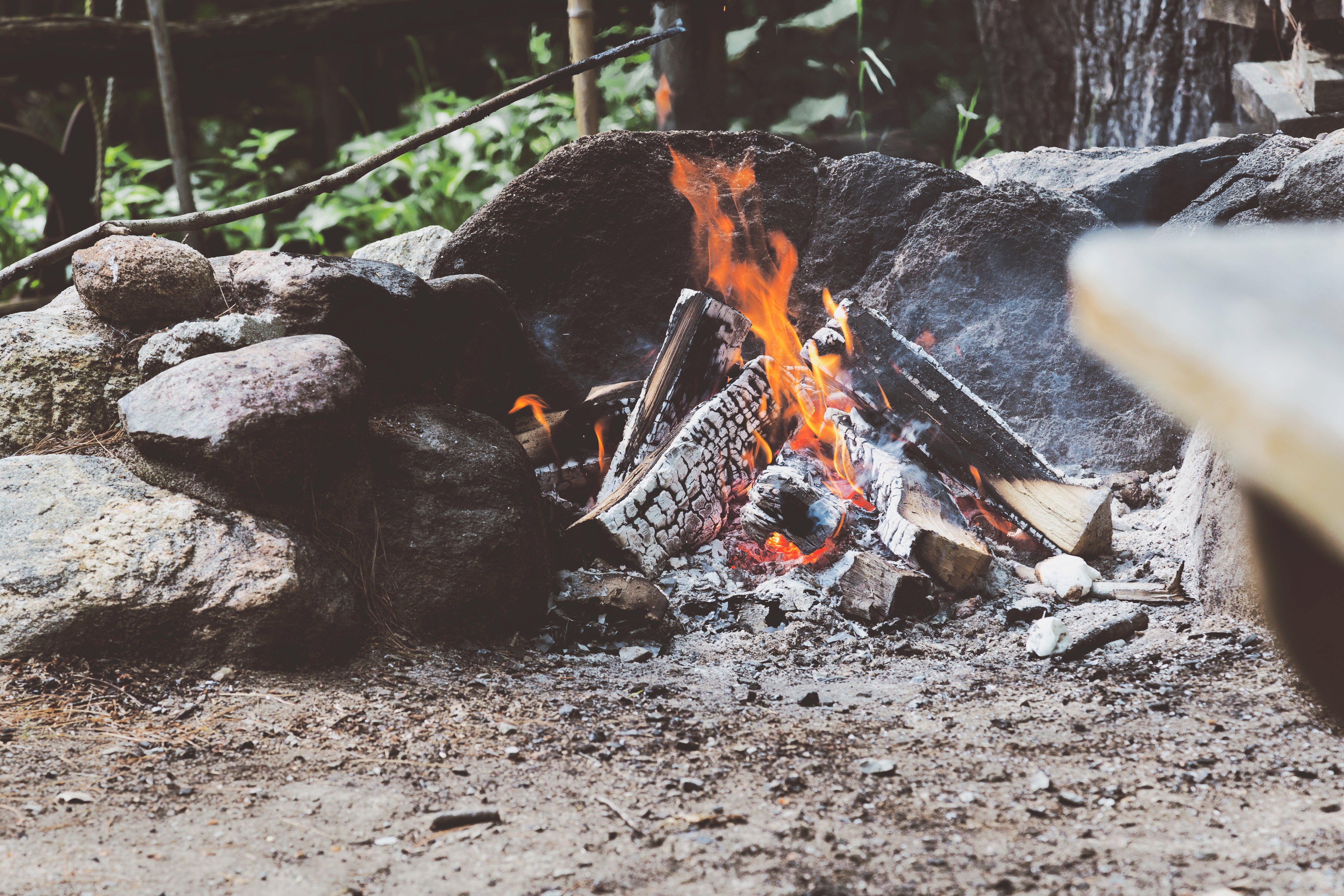
Lohri (January 14, 2024)
Deities Associated With Lohri
Lohri is associated with the Hindu God of fire, ‘Agni Dev’. Fire is believed to be all consuming and pure. It is this nature of fire due to which Hindus & Sikhs consider it divine.
The Lohri bonfire is a visual representation of the deity. Communities light a bonfire and gather around it to celebrate the season. It is a tradition to put the harvested rice or grain into the fire as a form of sacrifice and gratitude for the abundant produce.
Lohri also commemorates the Sun God, ‘Suryadev’. As the day of Lohri marks the end of peak winter, the sun god is welcomed and asked to bless the people with longer days and the crops of the new season with more light.
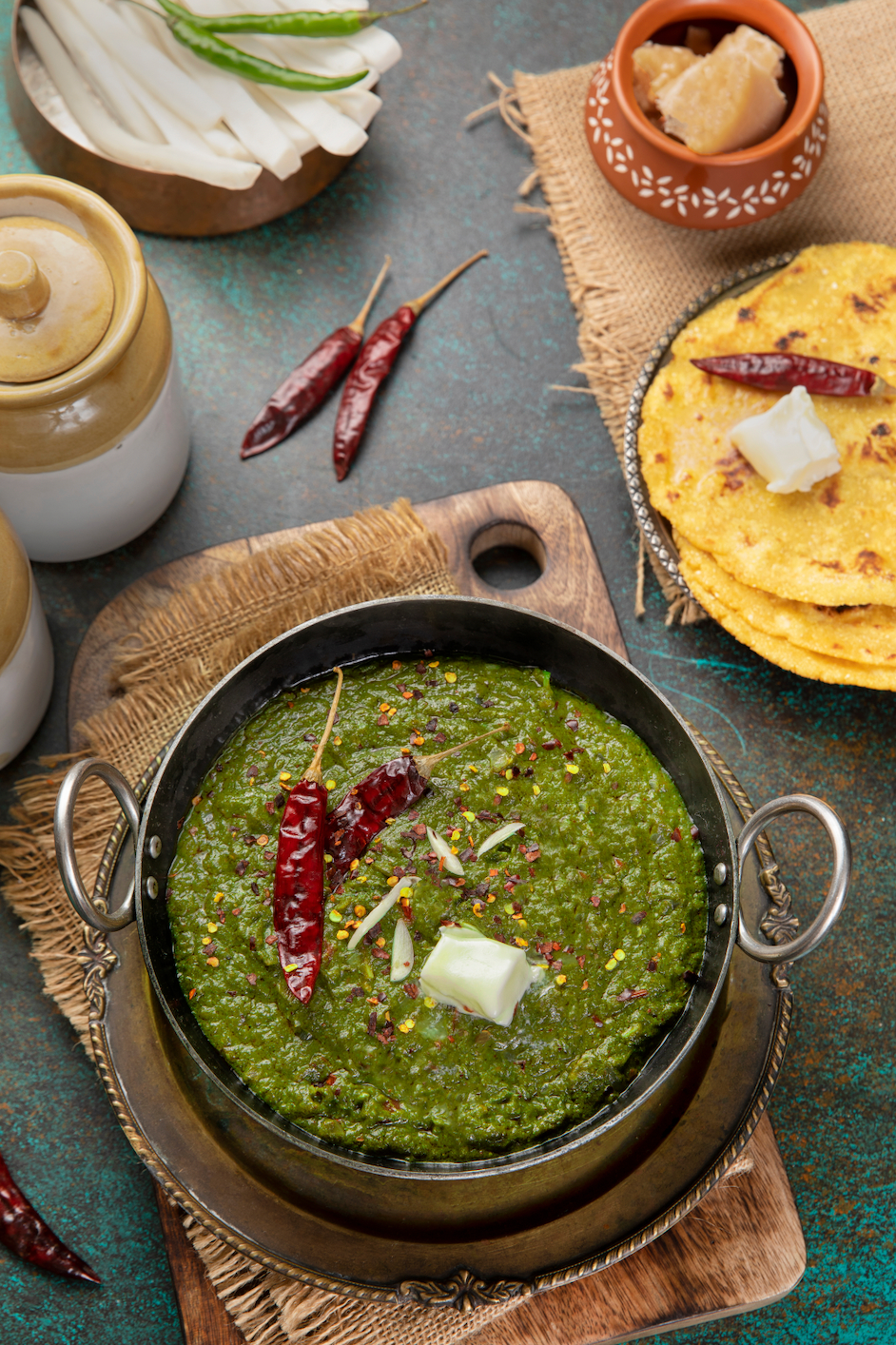
Lohri (January 14, 2024)
Wellness Practices Associated With Lohri
Concious living: Lohri being a celebration of communal spirit, sharing and abundance, the traditional dishes of the festival focus on sustainability. Lohri is celebrated to practice gratitude towards nature for this abundance and consuming seasonal produce mindfully- to avoid wastage & keep enough for the community for the rest of the season/year.
Mindful eating: The traditional dishes made on Lohri include ‘Makki di Roti & Sarso da Saag’- traditional fibre-rich corn flatbread with Iron-rich stew made from the leaves of the mustard plant. And traditional sweets with jaggery and sesame seeds. These highly nutritional dishes are flavoursome & are enjoyed as a festive delicacy.
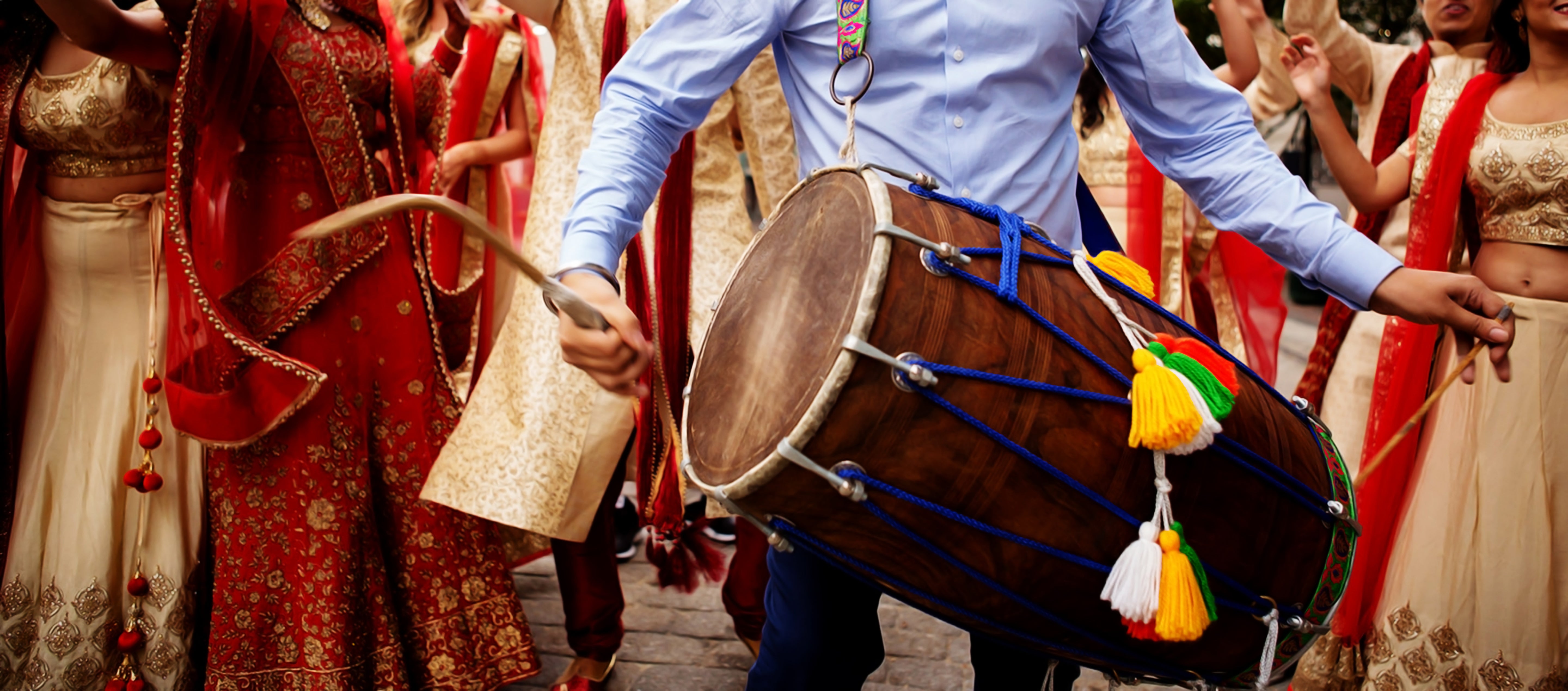
Lohri (January 14, 2024)
Physical Wellness & Folklore
Dancing is the main activity in the celebrations of Lohri. The traditional dance forms practised around the bonfire during Lohri include ‘Bhangara’ and ‘Gidda’.
Bhangara is an upbeat, high-enegry dance form that requires you to lift your arms or reach out and jump or hop.
Gidda is a form of dance that consists of subtle hand & body movements while going around in circles. It requires less energy and movement of the limbs so that everyone in the community can practice it.
The Robin Hood Of Punjab
Traditional Lohri songs often mention ‘Dhulla Bhatti’. He is considered to be ‘Robinhood’ in folklores in the Indian states of Punjab and Haryana.
He was a bandit during the Turkic colonial rule in India. He is said to have stolen money from the rich Mughal kings and given it back to the indigenous people of the region. He also rescued abducted Hindu & Sikh girls, saving them from being sold into the slave trade of the surrounding Islamic empires. And therefore, considered to be a legend who saved the region from atrocities of the invading rulers.
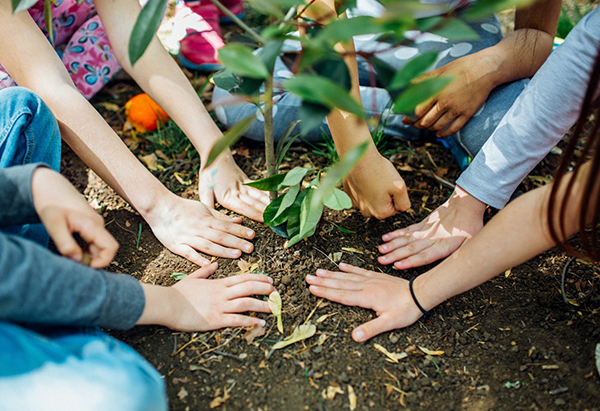
Lohri (January 14, 2024)
How You Can Participate
Events: Celebrate Lohri by participating in events at your closest Indian cultural societies.
Activities: Take a Bhangara dance class online.
At home: The simplest & most thoughtful way of celebrating Lohri is to plant a sapling or a seed, as Lohri celebrates harvest, fertility & welcomes a new season of plants.
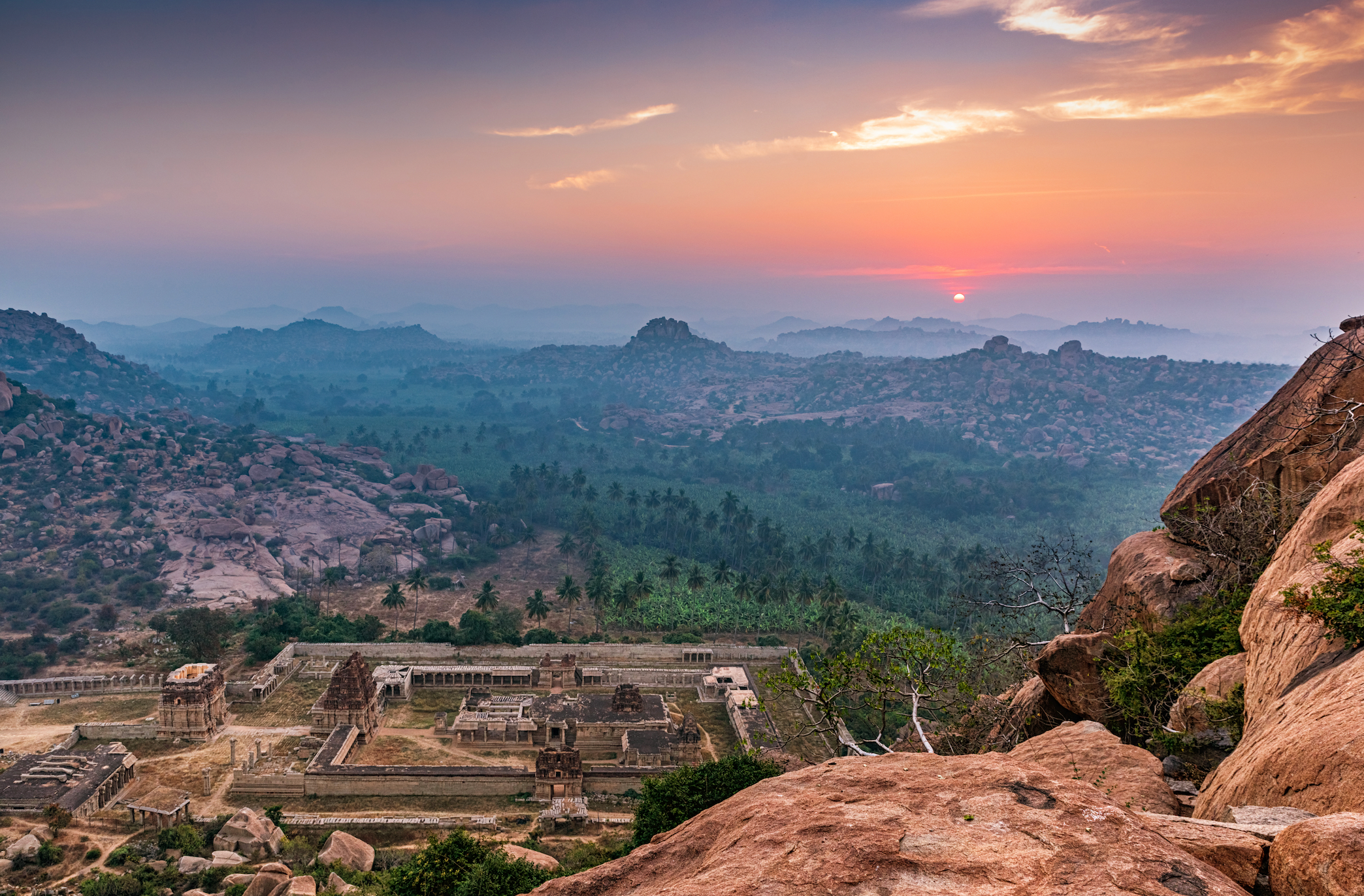
Pongal (January 14 - 17th, 2024)
Pongal & why we Celebrate It
‘Pongal’ is celebrated in the Southern states of India over 4 days. It signifies the Sun’s transition from the Southern Hemisphere to the nothern hemisphere. Pongal is celebrated to align with nature as it begins a new cycle.
The 4 Days Of Pongal & Their Wellness Themes

The 1st day of Pongal is to cleanse - not only your energy or self but also your surroundings.
People take baths, detox from screens, clean their homes or draw designs with rice flour at their doorstep.

Day 2 of Pongal is to let go of things that do not serve you. The mythological story associated with this day teaches to let go of our own ego and arrogance.
On this day, traditionally people gather around a fire and throw away old and dysfunctional things from their house into the fire.
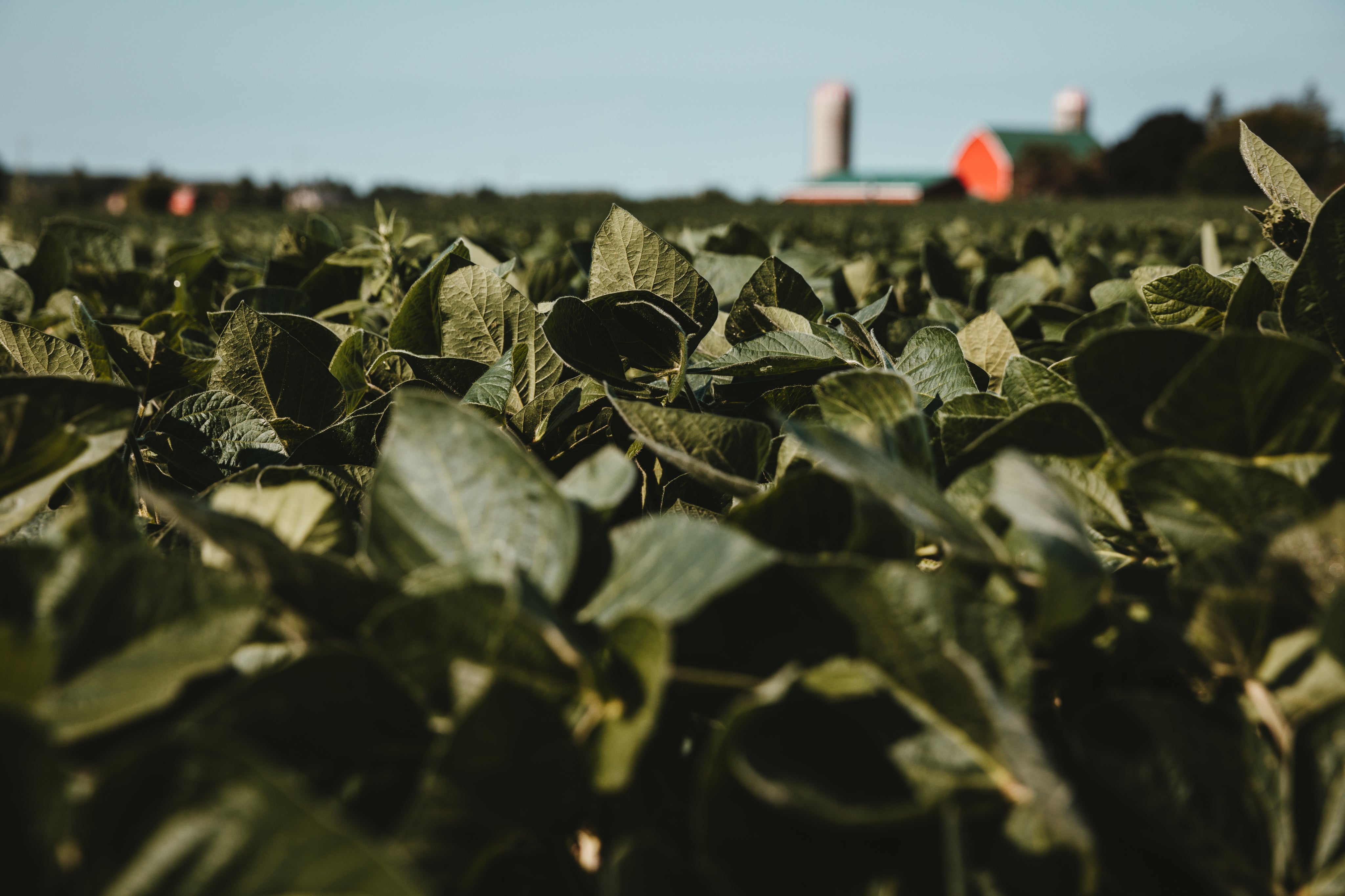
On Day 3 people decorate their cattle and animals around them, feed them and express gratitude for their help in farming and bringing balance in the ecosystem.
This tradition is rooted in the story that once when Lord Shiva sent his bull named ‘Nandi’ to earth and tell humans that they must bathe everyday & eat once a month. However, Nandi conveyed the opposite. Therefore, Lord Shiva punished him to forever be on earth & help humans produce more food & grain so that there may be no shortage of food.
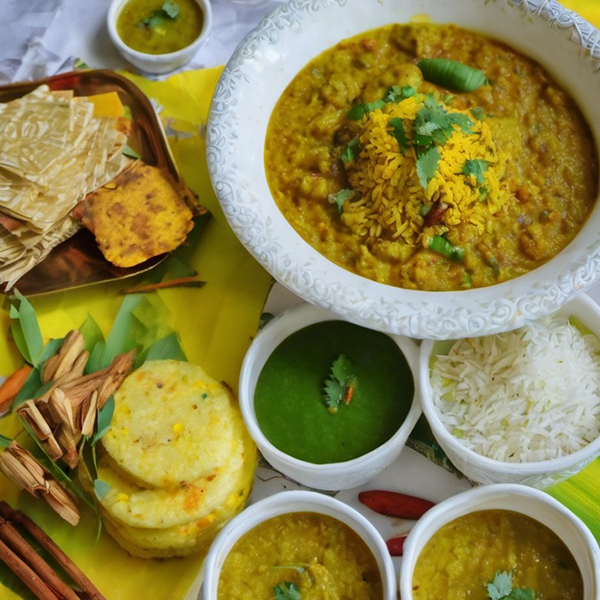
The last day of Pongal is to share with others. People visit their families. Communites host events for people to come together and share their art, their food etc. bringing in a spirit of togetherness.
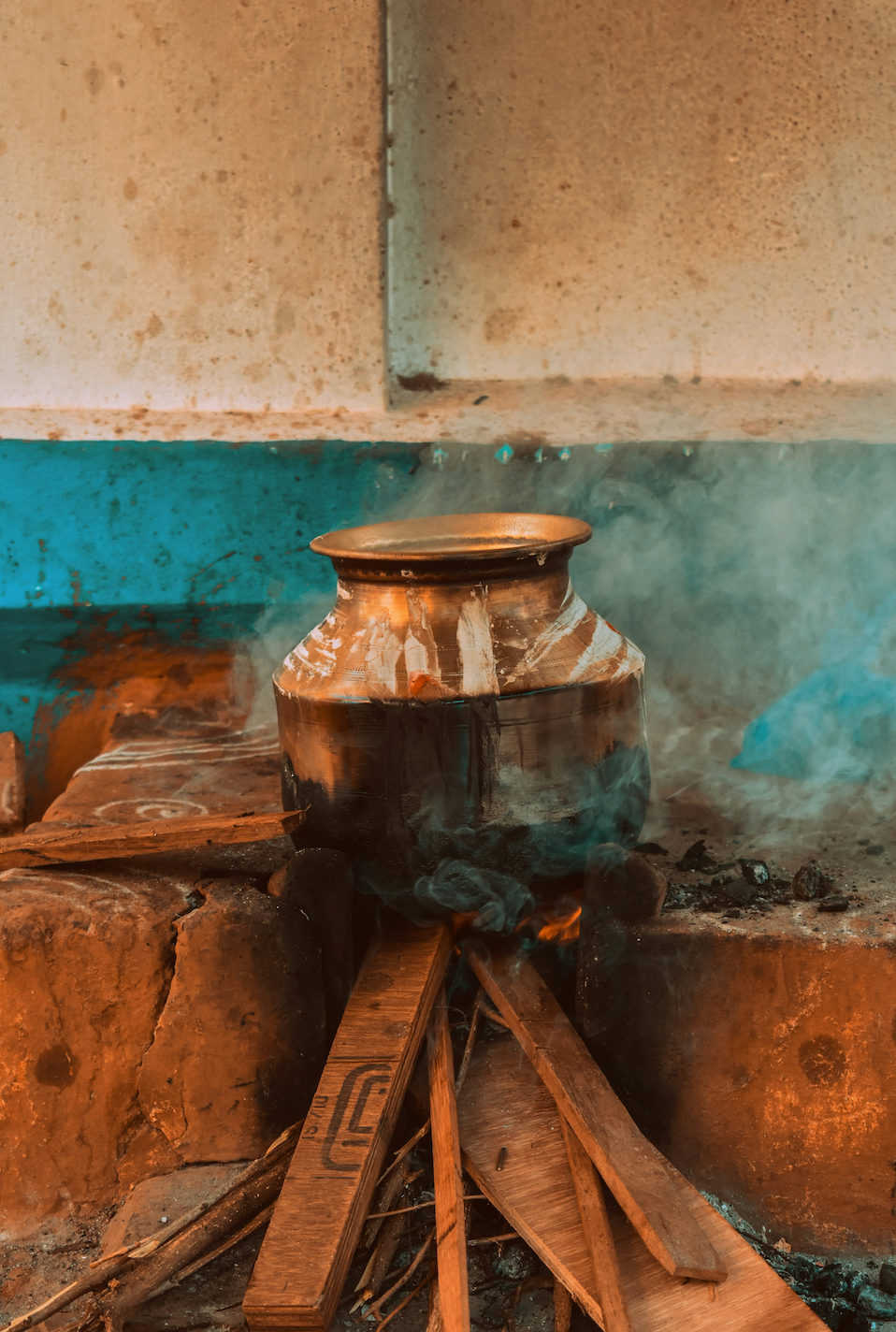
Pongal (January 14 - 17th, 2024)
The Pongal Rice
Pongal is a sweet traditional rice recipe made with seasonal produce. It is believed that this festival was named after this dish as most look forward to the festival so they can savour this delicious sweet!

Pongal (January 14 - 17th, 2024)
How You Can Participate
Events: Celebrate Pongal by participating in events at your closest Indian cultural societies.
Activities: Spend time with your community. Cook something from scratch, hold a dinner or a potluck. Do a wellness session with your family/friends.
At Home: Celebrate Pongal at home by cleaning your space or taking relaxing baths. Write things you want to let go of and burn them with herbs of your choice.
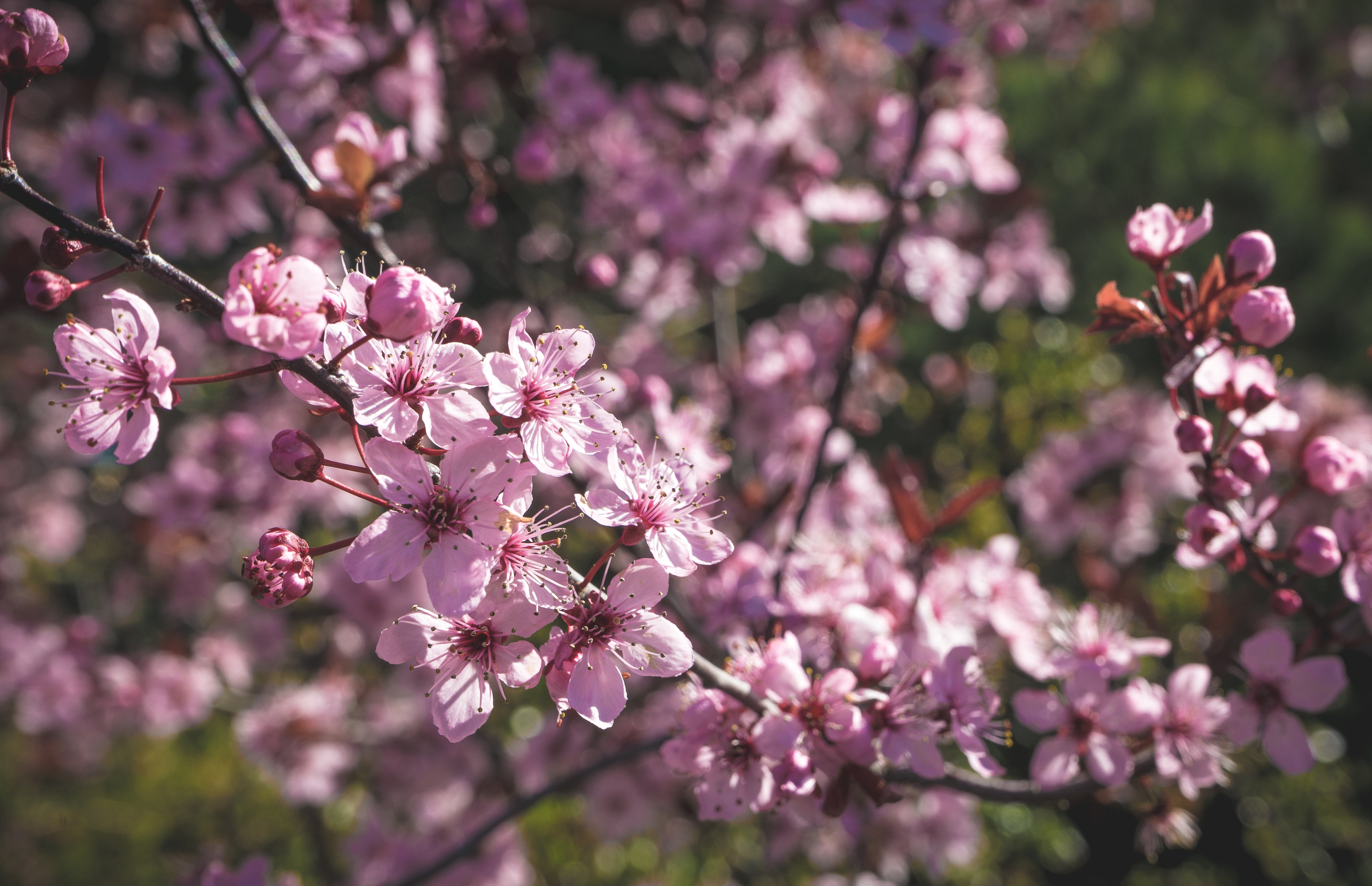
Vasant Panchami
Like most festivals in Indic faiths, Vasant Panchami aligns with nature, marking the first day of spring in India. This festival is celebrated to honor ‘Saraswati,’ the Hindu goddess of knowledge, wisdom, and arts.
This festival also commemorates ‘Kamadev,’ the God of love and desire.

Celebrating Knowledge & Wisdom.
Practicing Gratitude: On this day, people express gratitude for all the knowledge and wisdom bestowed upon them by the Goddess.
Books, computers, musical instruments, etc., are all worshipped as divine objects and mediums of the goddess through which we receive our knowledge.
Staying Grounded: On Vasant Panchami, those who celebrate acknowledge all that they do not know or are yet to know. They express humility and openness to receiving more knowledge and wisdom that exists in the world.

Wellness Practices
Embracing your true self
This festival honors the God of love and desire, ‘Kamdev’. Kamdev is renowned for his notorious stirring up of desires.
This day is an auspicious occasion to embrace yourself, your inner feelings, and desires. As desire is the root of all creation on earth and helps preserve & sustain everything on earth.
Unlock your creative potential
Vasant Panchami is celebrated by fostering creativity. Parents teach their kids their first words, musicians gather and create new harmonies.
It is an auspicious time to unlock your creative potential. Write, journal, pen down your ideas, start working on your creative projects, create music, dance, read books, initiate new practices, and explore the realms of imagination.

Vasant Panchami
How You Can Participate
Vasant Panchami this year will be celebrated on 30th Jan 2024 in some parts of India and on the 14th February 2024 in other parts.
Activities: Vasant Panchami is an ideal day for grounding and meditation.
At Home: Celebrate Vasant Panchami at home by engaging in activities such as reading, writing, picking up old instruments, or indulging in any creative hobby of your choice.

